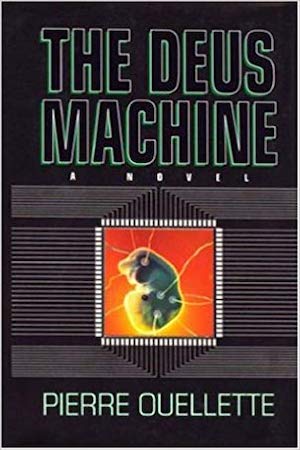
Summary:
Thirty years in the future, when AI is so advanced that humans live side by side with cognizant robots called Artificials, Kestrel Hathaway must come to terms not just with what machines know, but with what they believe.
Soon after experiencing a personal tragedy, Kestrel witnesses a terrorist attack and is drawn into a world of conspiracies and lies that she and Jordan, her Artificial, have to untangle. With a second, more brutal attack looming on the horizon, their best chance of stopping it is teaming up with federal counterterrorism agent Nick Vernon. But the clock is ticking—and all the while, Jordan is asking questions Artificials were never meant to ask.
Deftly weaving suspense and intrigue into a rich, resonant tale that explores faith and what it really means to be human, Steven James offers us a glimpse into the future—and into our own hearts.
Synapse is an unforgettable, gripping story of dreams shattered, truth revealed, and hope reborn.
Publication Date: October 2019
Category: speculative fiction; metaphysical fiction
ScienceThrillers technical content rating: ![]()
ScienceThrillers.com book review of Synapse :
SYNAPSE combines suspense, spirituality, and science to ask, can machines have a soul? Highly recommended for mystery/thriller readers with an interest in big philosophical questions.
SYNAPSE came to my attention because I have reviewed, and enjoyed, previous thrillers by Steven James that had scientific themes. James stands out among authors I review as a superb storyteller who uses the implications of contemporary science and technology without getting into a lot of tech detail in stories peopled by emotionally rich characters. In SYNAPSE, he creates a near-future world in which artificial intelligence has been advanced to the point that humans can create humanlike “Artificials” as companions and servants. This of course is not an original premise for science fiction. SYNAPSE is distinctive because it is a character-driven mystery-thriller that openly explores themes of Christian spirituality.
The main character is Kestrel Hathaway, a Methodist minister who in the opening chapter finds her faith in God shaken by tragedy. She becomes entangled in an investigation of a pending terrorist threat by “Purists” while at the same time she is given an Artificial. Her Artificial, Jordan, is nearly indistinguishable from a real human. Kestrel’s relationship with Jordan, and Jordan’s blossoming inner life, are the heart of this book (much more than the ticking clock to foil an attack.)
Jordan, though a creation of humans, has memories and a conscience. In the course of the book he turns to Kestrel to ask whether he has a soul. Specifically, whether God can forgive him for something he regrets, and whether he can have hope of an afterlife. Author James deftly handles some wonderfully thought-provoking scenes, using the minister’s point of view and the robot’s. What is prayer and forgiveness? What is faith? What is the basis of hope?
I particularly liked the way the Purists–villains of the story–have a wise and compelling motivation: that there is such a thing as too much technology, and that supra-human intelligence carries too many risks.
While Big Questions float through the pages, this is a thriller novel. James keeps the plot secrets and surprises long enough to build suspense and keep you reading. And his books always promise a twist or two.
Although it’s not hugely important, I’ll also mention I liked the book’s interior design with the techno header and chapter title pages.
I received an advance reader copy from the publisher.


0 Comments